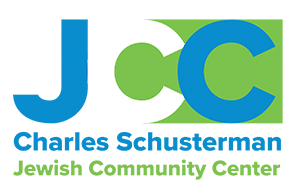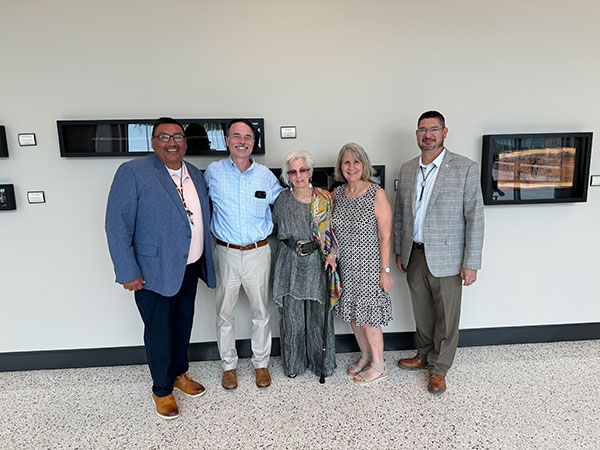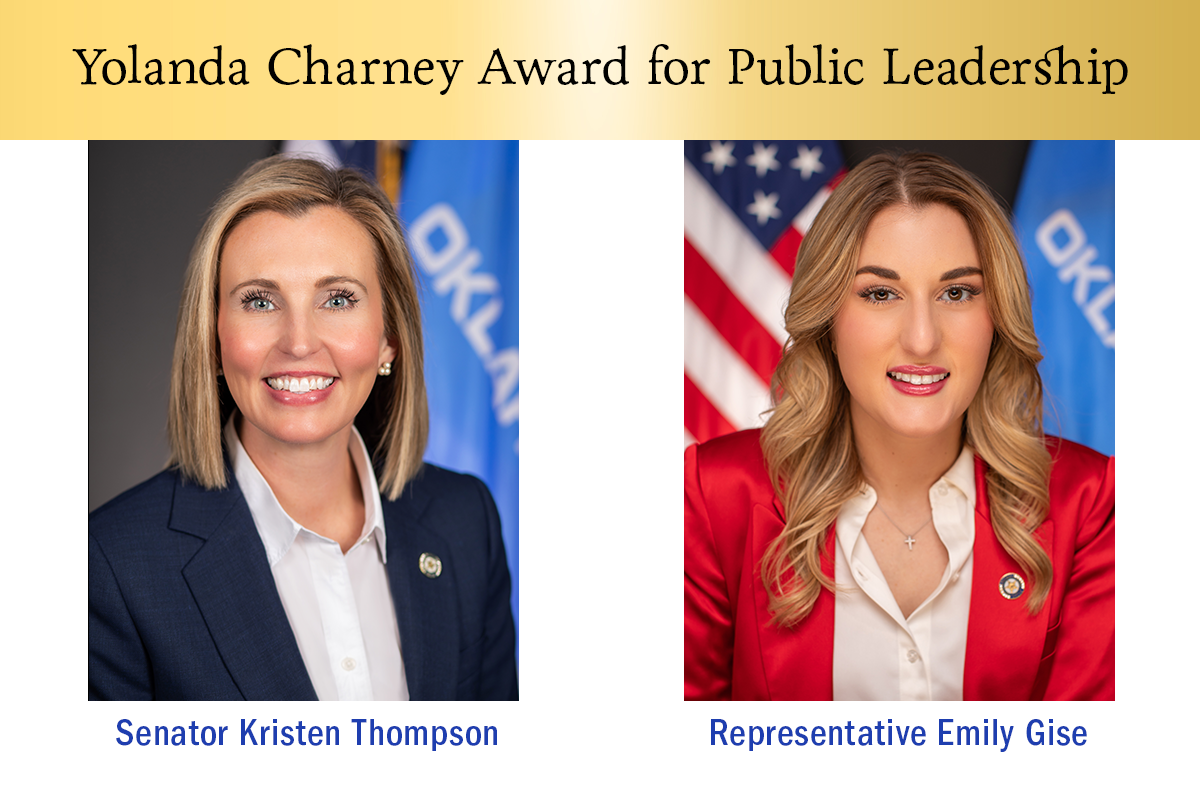Holocaust Education at Cherokee Nation Schools
by Representative John Waldron
In July, members of the SB1671 Oklahoma Holocaust Legislation Coalition met with members of the Cherokee Nation to discuss ways to collaborate and coordinate education efforts. The Coalition was formed by a group of legislators and citizens to promote Senate Bill 1671 by encouraging and developing a curriculum for teaching Holocaust studies in Oklahoma classrooms in multiple disciplines for grades 6-12. The Coalition has supported conferences around the state to promote Holocaust education. To expand this effort, we took a road trip to Cherokee country. As Administrative Consultant of the Coalition, I had the pleasure of driving Charlotte Schuman, the Coalition’s Chair, and Nancy Pettus, our Professional Development Consultant, down the turnpike to Tahlequah on a fine sunny day.
The trip began with a tour of Sequoyah School, a charter school that teaches children in an immersive Cherokee language environment. All signage in classrooms is in the Cherokee language and teachers speak only Cherokee as they teach the usual subjects one finds in public schools throughout the state. Tribal leaders are determined to preserve this linguistic heritage and efforts are paying off. Children learning the language now will be able to raise their children to speak Cherokee as their first language, a remarkable reversal of historical trends and traumas. It’s a tremendous testament to their determination and vision, and a truly remarkable example of the spirit of Oklahoma. It had Charlotte thinking about the flourishing of the Hebrew language after the creation of the state of Israel.
We had a productive conversation with Cherokee Nation Chief of Staff Dr. Corey Bunch, about the relationship of historical experiences between the Jewish and Cherokee communities. We emphasized themes of resilience, survival, and flourishing through cultural affirmation. We live in an age when teachers struggle to find the balance of what can be discussed in the classroom and how to help students process the difficult episodes of our shared past. Could a better appreciation of the Holocaust help students understand the Trail of Tears—and vice versa?
We discussed the possibility of collaboration, bringing Holocaust studies, and the progress we have made to Sequoyah school. Most importantly, by emphasizing our common humanity, we can help students learn how to build a better future for themselves. So, it seems fitting and natural to include other Oklahoma communities that have experienced and overcome historical trauma in our conversations and conferences. As Oklahomans, it only makes sense to work together towards this common goal. In the Cherokee Language, Gaduji, or in Hebrew, Ovdim beh-yachad: Working Together.
After a delicious lunch featuring Cherokee dishes (I had the Indian tacos), we were gratified to meet Deputy Principal Chief Bryan Warner. He took a break from his duties to say hello to the visitors and make us feel welcome. Remarkable things are happening inside the Cherokee Reservation—a true cultural renaissance—and Warner’s pride in these accomplishments was self-evident. When a community musters the will and the resources to overcome trauma and assert their cultural heritage and identity, they do more than preserve their past. They build a future in which young people can take pride in their identity and learn to work constructively together.
The SB1671 Holocaust Legislation Coalition has high hopes for continuing its work in Oklahoma education. It was never just about the Holocaust, or Jewish history. The Coalition is dedicated to the celebration of our common humanity, and in that regard, we are always looking for partners. It makes a lot of sense to work with the Cherokee Nation, and we have every hope of the relationship bearing fruit, reaching more teachers and more students with positive messages and useful learning. We’re grateful to the Oklahoma legislature for passing this legislation, for the cooperation of officials in the Oklahoma State Department of Education in organizing our conferences, and most of all for the warm welcome we received from Cherokee leadership last month. Now it’s time to build that better future together.







